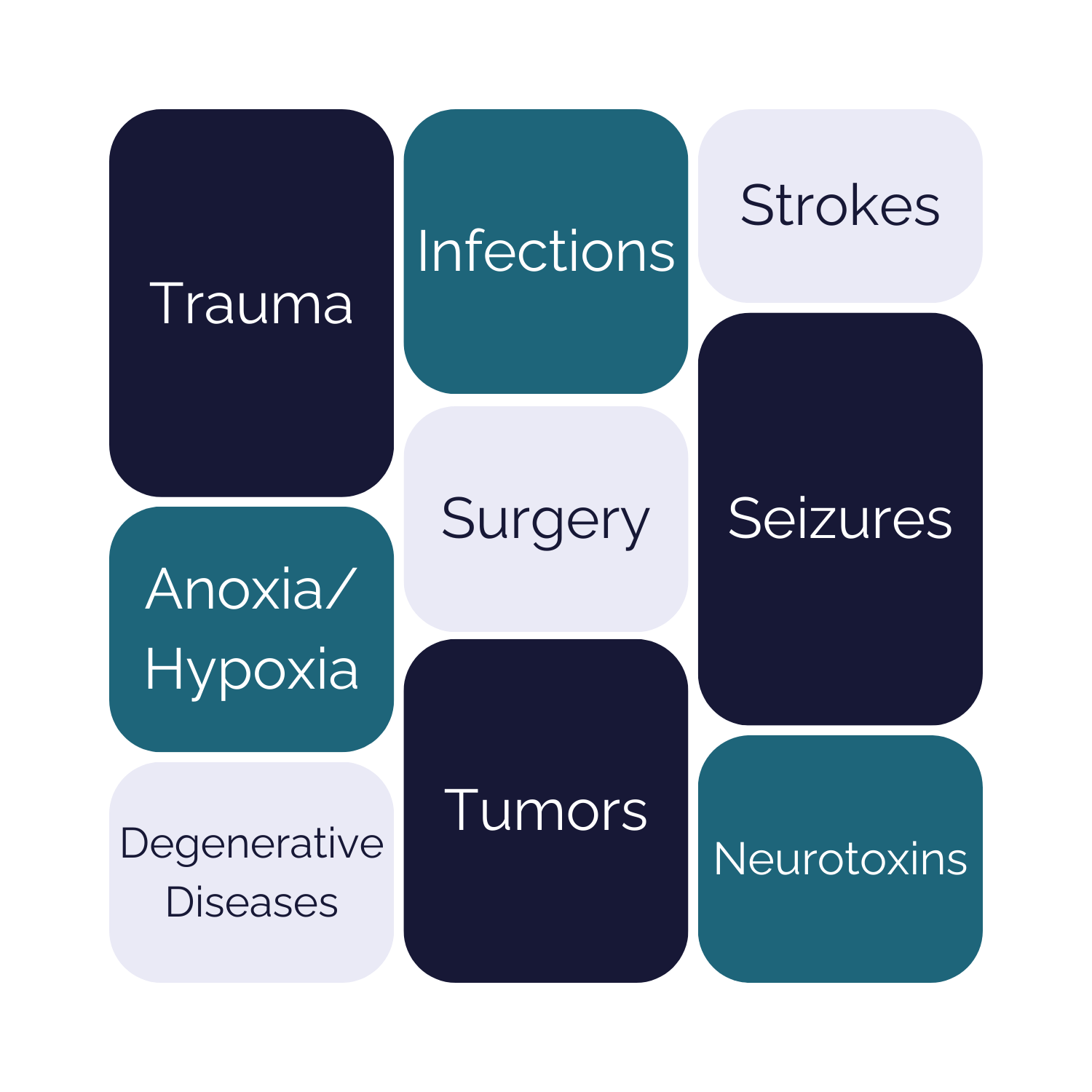Brain Injury Rehabilitation
An acquired brain injury is an injury to the brain caused by internal or external factors. Internal factors may include a medical condition or illness and external factors may include trauma, toxins, or surgery.
Brain injuries can impact a person’s speech, language, cognition, and social abilities. They may develop difficulties with articulation or voicing which can be diagnosed as apraxia or dysarthria. Difficulties with word finding or language organization are common and are referred to as aphasia. Frequently, changes to cognitive components of communication (including attention, memory, reasoning, and executive functioning) may have a large functional impact on day to day activities and new learning.
When children sustain brain injuries, some deficits may be noted at time of injury, while others may not be noted until later in their development as they "grow into" their areas of deficit. Children often recover many previously acquired skills with both time and therapy. It is oftentimes more difficult for these children to gain the developmental skills they were working on acquiring at the time of injury as well as the later developing skills which build upon these without therapeutic support.
Because we know timely intervention is key for brain injury recovery, assessments for rehabilitative services are completed within 72 hours of contact whenever possible.
-
A typical assessment session includes:
Evaluation of cognitive communication, speech, language, and social pragmatics to determine current functional impact
Providing recommendations for appropriate school accommodations and supports
Education regarding brain injury recovery, functional supports, etc.
-
Treatment sessions are personalized to meet the needs of each child and family. Evidence based therapeutic activities and functional supports are utilized and may include metacognitive strategies, component and functional retraining, environmental modifications, and self-advocacy strategies.
Kelly Barnhill, New York Times, November 26, 2023
“Healing from any injury is a process of rebuilding cells and tissues and structures -- taking that which is broken and making it new again. Healing a brain injury is the process of rebuilding not only tissues and cells and the connections between those cells, but also memory, thoughts, imagination, the fundamentals of language and our very concept of ourselves.”

